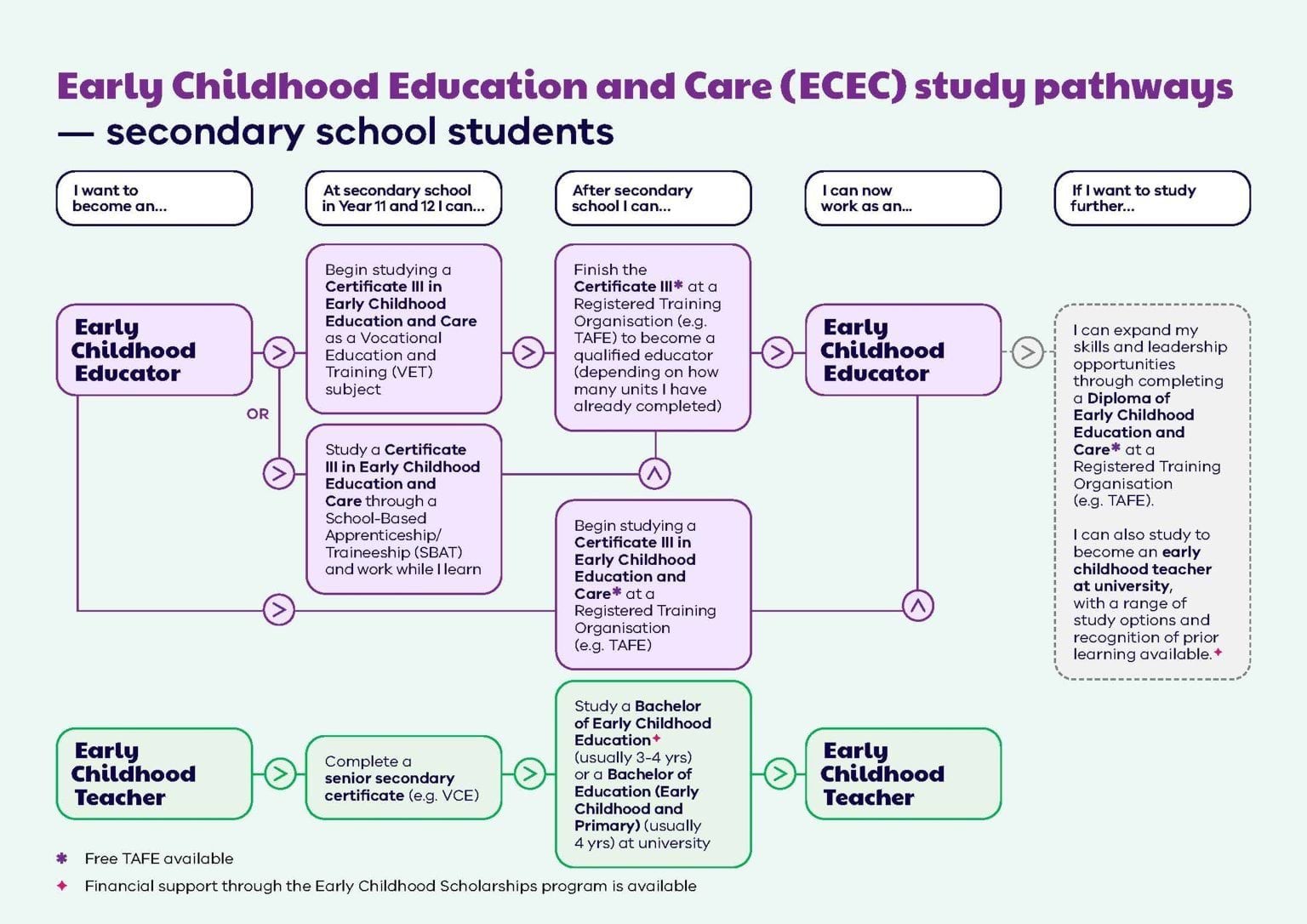There are a range of study pathways available to students
There are many entry points to studying early childhood education including as part of students' secondary school studies. This diagram provides an overview of these pathways. You can find more information in the sections that follow.
Students can start studying to become an early childhood educator while at school
As part of VET Delivered to School Students, students can start a Certificate III in Early Childhood Education and Care and complete it after school at a Registered Training Organisation. They may choose to do this through a school-based traineeship to gain practical, hands-on experience by combining study with paid, part-time employment at an early childhood service.
Students aren’t locked into one career path. After completing a Certificate III, they can later upskill to a diploma (this usually takes one year) to deepen skills and knowledge and increase leadership opportunities. Students can then pursue further study to become a degree-qualified early childhood teacher by studying a bachelor's degree (approximately 2 years with recognition of prior learning).
Listen to Tiana’s experience undertaking a school-based traineeship.
Students can study to become an early childhood teacher after finishing school
Students who complete VCE (or equivalent) can apply to study a Bachelor of Early Childhood Education at university, which typically takes 3 to 4 years.
- The minimum ATAR generally ranges from 50-70, depending on the university.
- Most courses do not have prerequisite subjects though many subjects are useful in preparing students, including English, Mathematics, Art, Health, and Psychology.
Updated
